Many NC growers have questions about the value of fungicidal seed treatments in protecting soybean stand and yield, especially as some growers shift to earlier planting dates.
Fungicidal seed treatments can be used to protect seedlings from pathogens, some of which are more problematic in cool, wet conditions encountered earlier in the planting season. Common seedling diseases encountered in NC include Pythium, Phytophthora, Rhizoctonia, and Fusarium. The problem is it’s hard to know if seed/seedling disease will be a big problem from one year to the next, but in general, Phytophthora and Rhizoctonia are favored by warm, wet soils while Fusarium and Pythium are favored by cool, wet soils.
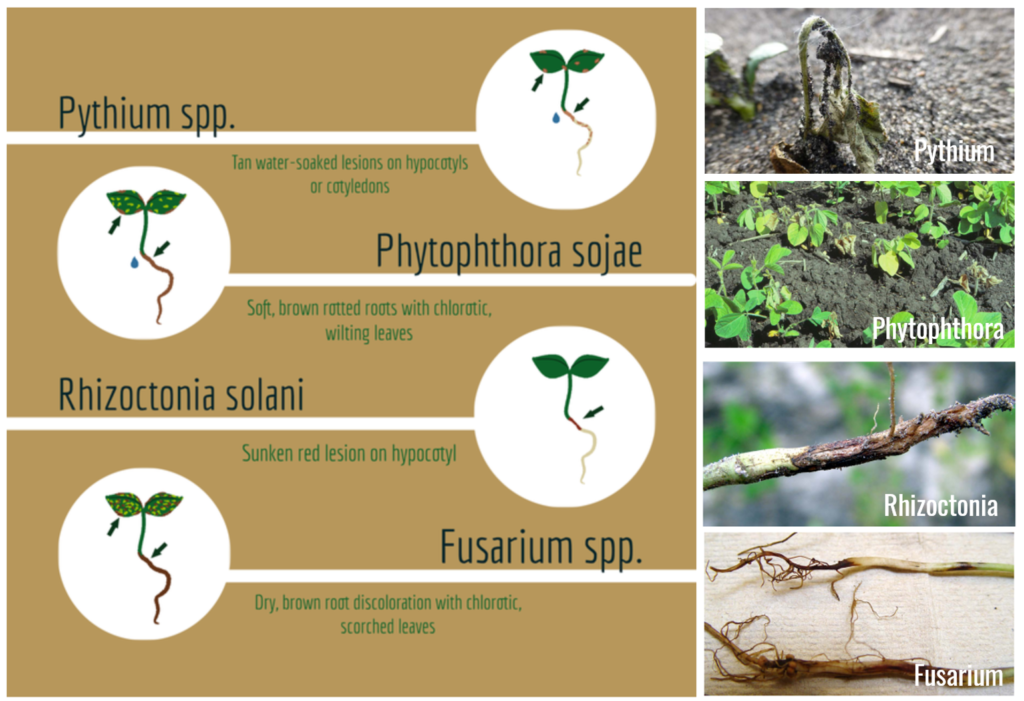
To evaluate the impact of fungicidal seed treatments on stand and yield across diverse planting dates, on-farm strip trials were implemented by County Extension Agents on growers’ farms. Twenty locations were evaluated across the state in 2020 and 2021.
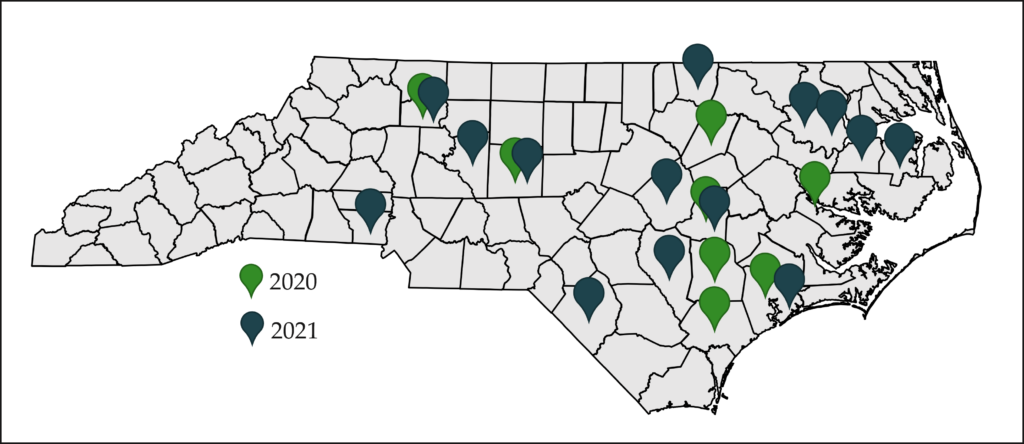
The strip trials were used to compare a multiple-mode of action fungicidal seed treatment to an untreated control. A maturity group 5 variety that is susceptible to Phytophthora root rot was used. Stand count was collected at V2/V3 and yield was collected at the end of the season.
First, we’ll look at the impact the FST had on plant stand. Fungicidal seed treatments had a statistically significant positive (as indicated by an asterisk) impact on stand at over 50% of the locations tested. The earlier planted locations tended to be more likely to show statistical differences in the treated versus untreated strips. This suggests an FST can help protect stand but is more likely to have an impact at earlier planting dates. Protecting stand early in the season is valuable for preventing replant and ensuring early-season vigor to help with competitiveness against weeds.
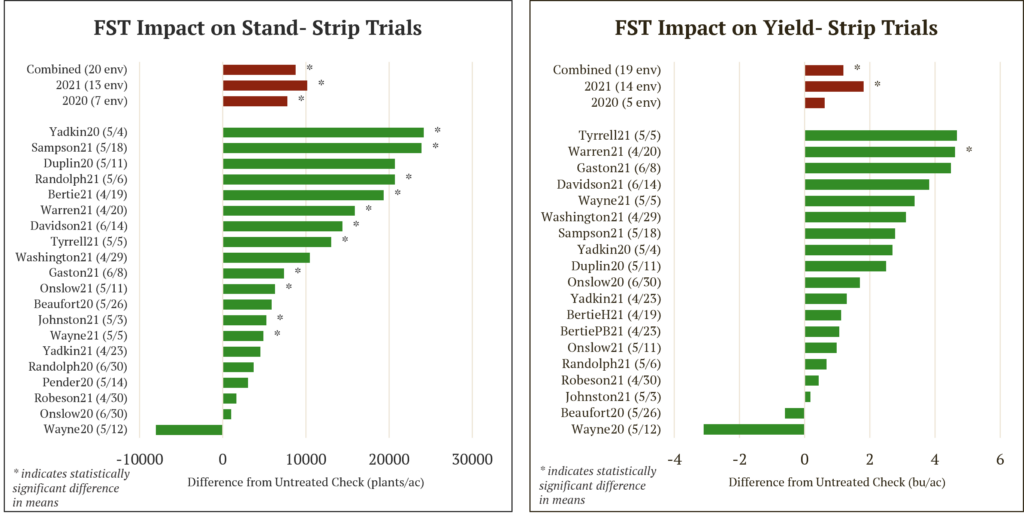
But the real question is how does this translate to yield? While the FST often protected stand, there was not always an increase in yield. This is likely because more seeds were planted than is necessary to optimize yield. Only one location out of the 20 tested showed a significant impact on yield, but when data was pooled over all locations, there was a significant difference between the treated and untreated strips. This suggests a FST may impact yield when planting before mid-May, in some cases.
These strip trials were carried out to synergize similar small-plot research that is being conducted by the NC Soybean Extension program. Data from the small plot trials is summarized below and includes data pooled across 2-3 sites, 3 maturity groups, and 4-5 seed treatments, each year. The FST had a significant impact on both stand and yield when planted before mid-May, in one year. There was a large impact on yield in the March and April planting dates in 2019 but not in 2020. This is likely due to a number of reasons including environment, weather, pathogen prevalence, and soybean variety.
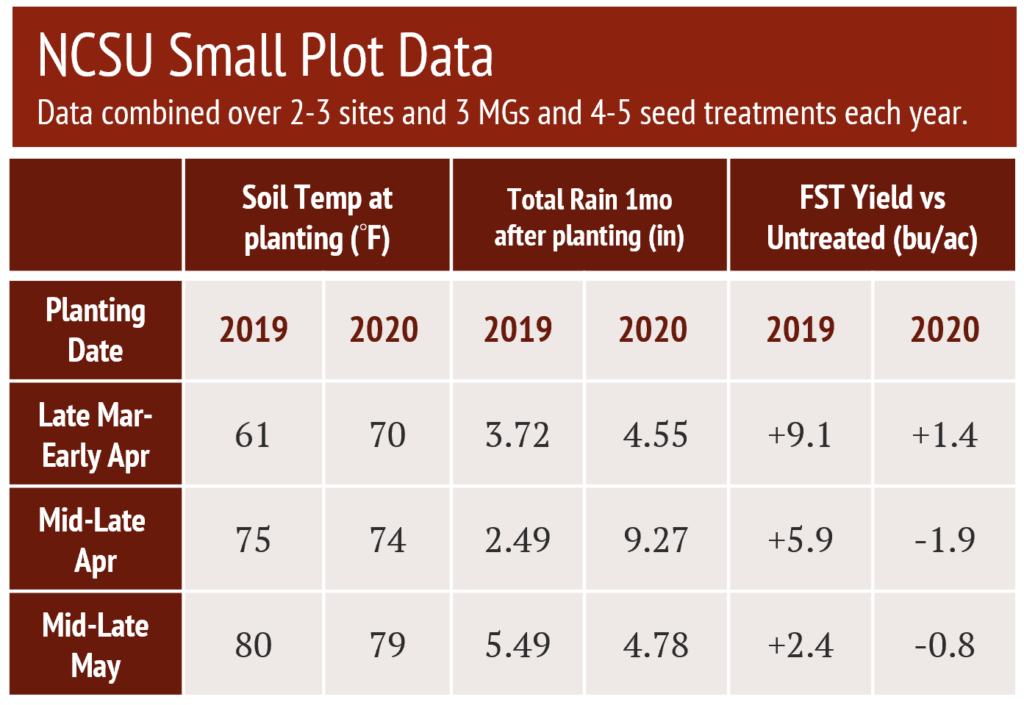
Based on this strip trial data, complementing small plot data, and historical small plot data, a fungicidal seed treatment is recommended if planting earlier than mid-May. While fungicidal seed treatments provide valuable insurance for earlier planting dates, the evidence is overwhelming that neonicotinoid insecticide seed treatments do not provide a benefit for soybeans in NC. If possible, select a seed treatment that includes a fungicide but not an insecticide. This helps slow resistance and saves the insecticide seed treatments for crops where they are critical, like cotton.
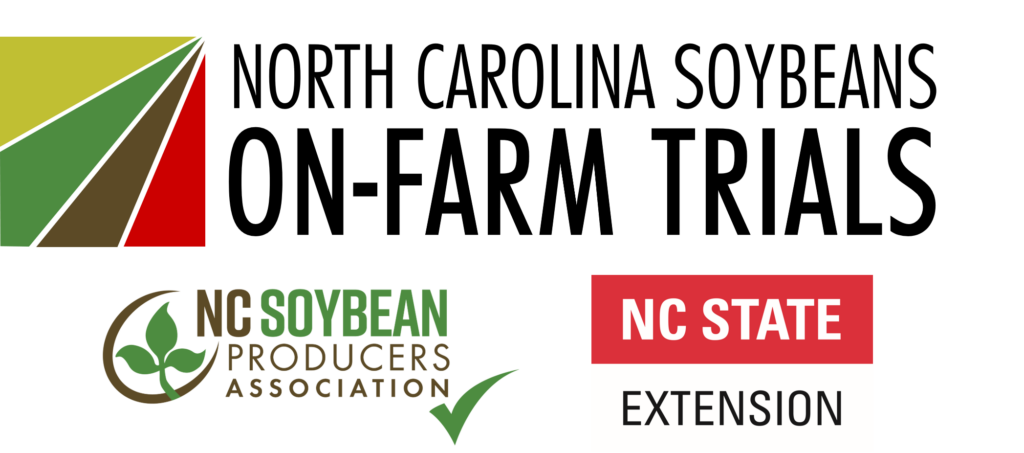
On-farm trials are conducted with growers’ equipment in growers’ fields using growers’ management practices. They provide a relatively low-cost, low-risk way to answer grower questions and synergize small-plot research that is being conducted by the NC Soybean Extension program. If you’d like to participate in the 2022 NC Soybean On Farm Trial program, please reach out to us.
Special thanks to the participating agents for helping carry out this work: Daryl Anderson, Billy Barrow, Andrew Baucom, Tim Britton, Jenny Carleo, Troy Coggins, Payton Flowers, Andrea Gibbs, Rod Gurganus, Tim Hambrick, Melissa Huffman, Jarette Hurry, Della King, Mac Malloy, Matthew Place, Hunter Rhodes, Mark Seitz, Blake Szilvay, Scott Tilley, Jalynne Waters Lara Worden








